|
Gracious God, we give thanks for the rewards of growing older:
1 Comment
 The congregation with which I’m working this summer just finished a worship series on catching glimpses of God’s realm breaking into our world. For me, the best part of the series has been hearing members of the congregation share reflections about how and when they’ve caught glimpses of God. Their reflections have been meaningful reminders of the opportunities we have to catch glimpses of God in the ordinary experiences of our lives. They’ve also renewed my sense that the line that’s often drawn between sacred and secular can block those glimpses. As I’ve listened to clergy colleagues discuss when to return to in-person worship, I’ve sensed that sacred-secular line motivates some of them. One colleague even talks about the “sacred space” of the sanctuary as a rationale for returning to in-person worship sooner rather than later. I don’t deny that sanctuaries can be sacred spaces, but I also believe that almost any space can be sacred. A home or an office? Yes. A forest or a field? Yes. A parking lot or a playground? Yes. A beach or a mountaintop? Yes. The six feet that helps keep us safe from COVID-19? Yes. 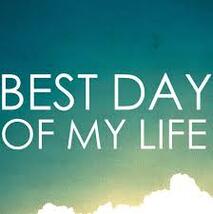 What was the best day(s) in your life? That is the question for the fourth week of our Join the Conversation initiative. I’m guessing that the responses will be as varied as those sharing them. As I’ve thought about the question, a song by the band American Authors keeps playing in my mind. Here ae a few lines of the lyrics from “Best Day of My Life”: But all the possibilities No limits just epiphanies . . . I’m never gonna look back Woah, never gonna give it up . . . This is gonna be the best day of my life I also recently discovered a poem by Gregory M. Lousignont. The poem describes “The Best Day of My Life”: Today, when I awoke, I suddenly realized that this is the best day of my life, ever! There were times when I wondered if I would make it to today; but I did! And because I did I’m going to celebrate! Today, I’m going to celebrate what an unbelievable life I have had so far: the accomplishments, the many blessings, and, yes, even the hardships because they have served to make me stronger. 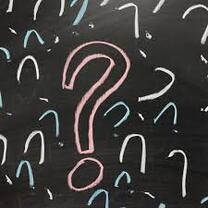 For years I taught four- and five-year olds in Sunday school. I find something magical about children that age. They are open to wonder, to expanding what they know about the world, to learning about how to be part of a group. Children that age also are mastering the art of tattling. I knew that on most Sunday mornings I would hear: “Ms. Kathryn, Alex took my scissors” or “Ms. Kathryn, tell April not to sit in my place” or . . . well, you get the picture. Children didn’t have to be in our class long before they could anticipate a pattern of give and take. They would tattle, and I would ask: “Whom do you need to worry about?” With a somewhat defeated tone, they would answer: “Me.” I can be a world-class worrier. Sometimes when that worrying runs amuck—and seems to circle the globe before landing back in my lap—I stop and ask myself: Whom do you need to worry about? More recently I’ve begun to reframe that question. In part, that’s because I’m not sure how helpful worrying is—even when I limit it to myself. But I’ve also been working with several groups as they try to imagine how the next months or even year might look in their collectives lives. How do they plan for a future that is uncertain? How do they begin to refine their reality? As I’ve met with these groups via Zoom—which is part of that redefined reality—I’ve asked them my new version of “whom do you need to worry about?” The new question is: “What is your work . . . and what’s not your work?” 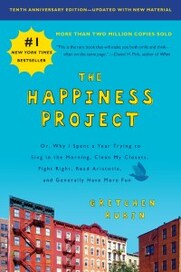 One rainy afternoon, while riding a city bus, Gretchen Rubin asked herself, “What do I want from life, anyway?” She answered, “I want to be happy.” But she realized she’d spent no time thinking about her happiness. In a flash, she decided to dedicate a year to a happiness project. The result was a book. In The Happiness Project, Rubin synthesizes the wisdom of the ages with scientific research as she takes readers along on her year to greater happiness. I invite you to begin your own happiness project. More specifically, I invite you to participate in week three (July 15-21) of our Join the Conversation initiative by asking yourself: What kinds of things make me happiest now? Then share your response with us. You may:
Join the conversation--as you begin your own happiness project. KP  I love giving gifts. Not expensive or elaborate gifts, but things I think the recipients will enjoy or appreciate. Whenever I traveled, I would pick up gifts and tuck them away until the next birthday or special occasion. As I explored new places, I was thrilled to find just the right thing for someone in my life. Last month the twin children of good friends turned sixteen. I wanted to do something fun for them since they’d spent most of the spring in online learning and now all their summer plans were cancelled. After opening the gifts I’d sent, my friends’ son told his mom, “I don’t know if I deserve all this.” His comment made me think about how often I’m reluctant to accept gifts from other people. I often chalk that reluctance up to my not wanting anyone to feel they need to make a fuss. After all, why should someone spend money when I don’t really need anything? But I wonder if there isn’t something else at work in my reluctance to say yes to gifts—especially when they come in the form of someone offering to help with something. Would saying yes to such gifts mean I’m not as independent as I like to think I am? Would it make me seem needy at a time when lots of people have far greater needs? Or perhaps saying yes to help would take away some of the control I like to maintain in most aspects of my life. 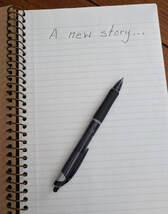 Earlier this week I shared my experience with proposing an alternative to “new normal.” I thought my suggestion of “redefined reality” had some merit, but other folks on Facebook disagreed. To be honest, I still think it has some merit. It’s not perfect, but it begins to name the need I feel during these uncertain times. When everything began to change four months ago, I don’t think any of us could comprehend what that change might mean. I’m pretty sure none of us can fully comprehend its meaning now. So how do we live with a level of uncertainty we never could have imagined just four months ago? How do we redefine the reality we now face? Maybe one way is to write a new story. 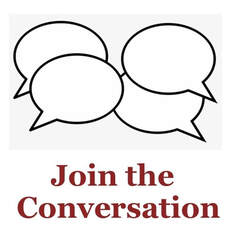 “We should write a book!” That exclamation came during a group chat last week about the first question in our new Join the Conversation initiative. The chat was filled with rich insights, humorous thoughts, and deep feelings about what people find most rewarding about getting older. I agree we should write a book, and this new initiative will help us do that. Each week during July and August anyone who would like will have an opportunity to share thoughts and feelings about navigating the third third of life. We will introduce a new question each week and then invite you to join the conversation. There are a number of ways for you to share your thought and feelings:
Here’s the question for week two (July 8-14): What are the most important lessons you have learned? Join the conversation—and help us write a book! KP  It began a few weeks ago when a friend posted this question on his Facebook page: Can we find fresh expressions for the phrase “new normal”? It’s tired, like the phrase “at the end of the day” has become. Any suggestions from you grammarians and vocab-lovers for other ways to express “new normal”? I decided to play along and shared this suggestion: redefined reality. My friend responded: “I’m using it! You’re my Cyrano de Bergerac!” I thought we’d had a little fun and that would be that. Boy, was I wrong. More responses to my suggestion soon appeared: Doesn’t have to be! Only if we accept it! I cannot stand the phrase “new normal” ;) #moveon #moveforward #bedone I feel that “new normal” is trying to make us accepting of this “time out period” in our lives. New normal suggests there is no end. Time out suggests there is a light at the end. A “Time for Faith” is how I would rather see it. Silly me, I thought perhaps I could change the conversation by providing a bit context: I think the definition of “new normal” is interesting: A previously unfamiliar or atypical situation that has become standard, usual, or expected. There have been lots of times in history when something happened that changed how people lived, related, etc. I don’t see it as static, but rather as always changing, evolving. Since the current situation is global and severe, it just increases the speed of that change. 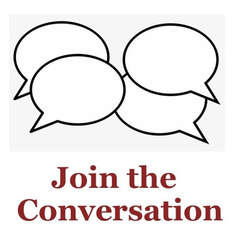 I am so excited to invite you to participate in a new initiative sponsored by our region’s Elder Care Ministries. Each week during July and August you will have an opportunity to share your thoughts and feelings about navigating the third third of life. We will introduce a new question each week and then invite you to join the conversation. There are a number of ways for you to share your thought and feelings:
So let’s begin the conversation! Here’s the question for week one (July 1-7): What are the most rewarding things about getting older? I can hardly wait for your responses. KP |
Kathryn PalenAssociate Executive Minister Archives
January 2023
Categories |
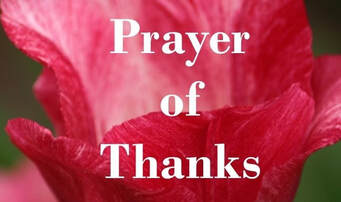
 RSS Feed
RSS Feed